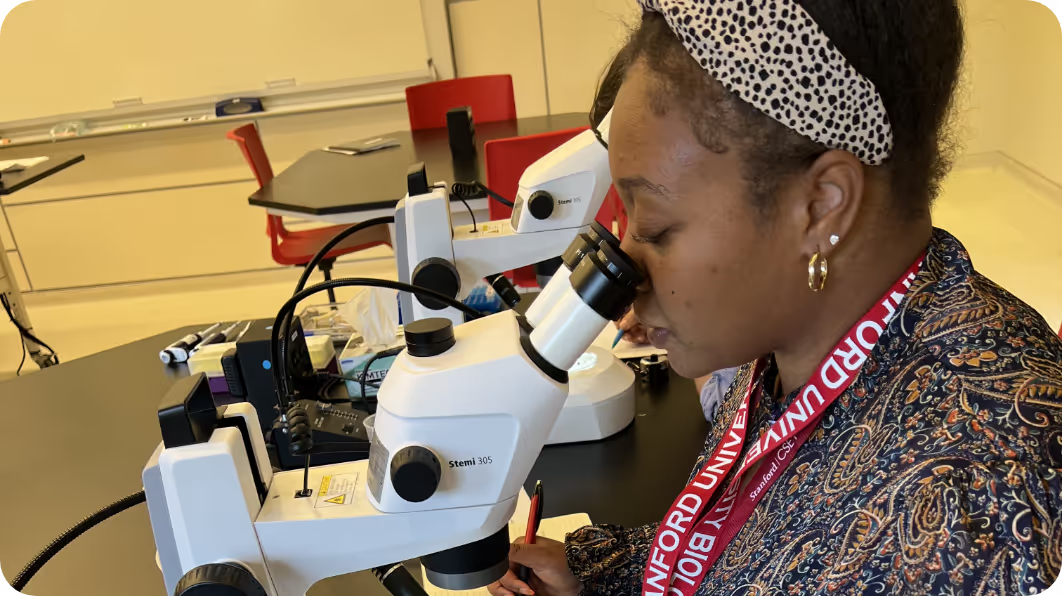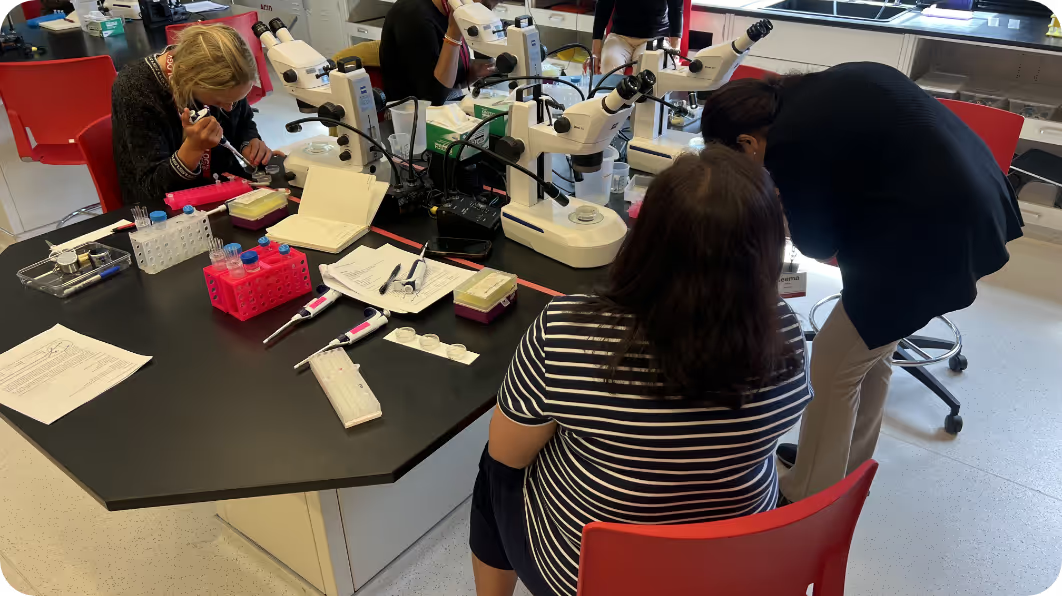K-12 Outreach
A core mission of our laboratory is to broaden access to science through meaningful public engagement and outreach.
We recognize that many people face significant barriers to accessing quality science education.
As part of a well-resourced academic institution, we are committed to leveraging our resources and expertise to create inclusive opportunities for science engagement and learning. This includes initiatives like our Research Experience for Teachers program and the Frogger School Program, designed to connect educators and students with hands-on scientific experiences and foster a lifelong curiosity about the natural world.
Frogger School Program
We developed the Frogger School Program in 2012 as a partnership with K-12 science teachers to bring dynamic, meaningful, and engaging learning experiences to the classroom.
What we do for Frogger Classrooms
- We will provide you with everything to get started - including a full terrarium setup and frogs.
- We have sample lesson plans for integrating your classroom poison frogs into your science curriculum.
- Our lab members will visit your classroom or video conference with your class to talk about our latest science and fieldwork.
- Once per year, we collaborate with 1-2 teachers of participating classrooms on an original science project.
What Frogger classrooms do
- Each classroom cares for its classroom pets. This is a team effort that requires culturing feeder insects as food for frogs and ensuring that each frog has a suitable habitat.
- Please contribute to the community by sharing your lesson plans!
Publications with K-12 Classrooms
Moskowitz NA, Dorritie B, Fay T, Nieves OC, Vidoudez C, Cambridge Rindge and Latin 2017 Biology Class, Masconomet 2017 Biotechnology Class, Fischer EK, Trauger SA, Coloma LA, Donoso DA, O’Connell LA. 2020. Land use impacts poison frog chemical defenses through changes in leaf litter ant communities. Neotrop Biodivers. 6:75-87. Preprint DOI: 10.1101/745976; Article DOI: 10.1080/23766808.2020.1744957

Interested in Joining?



Research Experiences for Teachers
The BioRETs INSPIRE (INterSPecies Interactions Research Experience) program is a collaborative initiative between our laboratory and the Center to Support Excellence in Teaching (CSET) at Stanford University. This program partners with Bay Area life science teachers to enhance their research skills, content knowledge, and pedagogical approaches through immersive, lab-based experiences.
Participants engage in a six-week, on-site research experience at Stanford, working alongside biology research teams to study interspecies interactions. The program includes presentations by Stanford biologists, discussions of scientific literature, and activities that engage teachers with current research methods. Additionally, professional learning sessions focus on building pedagogical skills for creating and facilitating opportunities for students to engage with authentic science practices. The experience culminates in a poster symposium where teachers present their research findings.
Beyond the summer experience, INSPIRE provides ongoing professional development and support during the school year to help teachers implement their summer learning into classroom practice. By fostering partnerships between researchers and educators, the program aims to translate lab experiences into equitable learning opportunities that support students’ understanding of how interspecies relationships are critical to human and ecosystem health.
Program Publications and Teacher Lesson Plans
Amirapu, A. (2025). Unit Plan: Habitat Fragmentation. QUBES Educational Resources. doi:10.25334/NCQ1-G716

Nangia, A. (2025). Unit Plan: Adapt or Die. QUBES Educational Resources. doi:10.25334/9HT6-KA73

Nangia A, Gonzalez M, O’Connell LA, Fiocca K. 2025. Argentine ant chemical profiles vary by location on the Stanford University campus. microPublication Biology. 10.17912/micropub.biology.001475; PMID: 40061017

Apply for the Upcoming Cohort



